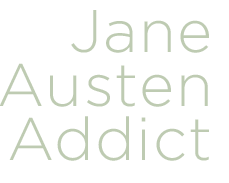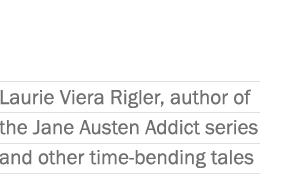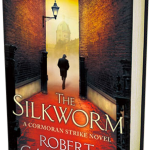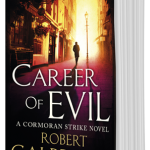I’ve always been a voracious reader. I read for pleasure, relaxation, inspiration, and insights. I’ve also discovered that for those of us who are writers, there’s a bonus feature baked into every great book: a master class on writing.
I enjoy exploring an author’s sensory descriptions, seamless transitions, witty dialogue, deft handling of POV, and judicious sprinklings of humor. I’m fascinated by the sleight of hand that plants foreshadowings and the skillful ways in which the writer made me lose sleep for turning pages late into the night. And, perhaps most important, I am always in awe of the keen eye that shines a light on the manifold facets of human nature.
Jane Austen is one of those authors with an unflinching eye for human nature at its best and its worst. So are Nick Hornby, Zadie Smith, J.K. Rowling, and Aurelia Haslboeck, whose debut novel, The Journeys of John and Julia: Genesis, exemplifies why I return to the works of these authors again and again. I re-read them for pleasure, inspiration, and to marvel at the sheer brilliance of their writing.
Recently, within the space of two weeks, I devoured the first three books in J.K. Rowling’s Cormoran Strike detective series, which she writes under the pen name Robert Galbraith. Here’s a brief clip of Rowling talking about the creation of her series:
I’ve never thought of myself as an avid reader of detective fiction, but that has changed since reading The Cuckoo’s Calling, The Silkworm, and Career of Evil, which are the first three books in Galbraith’s series. So vividly and insightfully does Galbraith draw the lead characters that solving the mystery becomes secondary to the compelling personal and professional struggles of the hero and heroine.
They are private detective Cormoran Strike and his assistant/partner Robin Ellacott. He is a wounded warrior, a veteran of the war in Afghanistan who used to be an investigator for the military and now has his own detective agency. He is a master at what he does, but his agency is often on the brink of financial ruin. She is hardworking, highly intelligent, and indispensable to her boss. She is also newly engaged to a man who feels nothing but contempt and jealousy for her work with Strike.
Here’s a tiny taste of the delights that can be found on every page:
“People liked to talk; there were very few exceptions, the question was how you made them do it. Some were amenable to alcohol; others liked a spotlight; and then there were those who merely needed proximity to another conscious human being. A subsection of humanity would become loquacious only on one favorite subject; it might be their own innocence, or somebody else’s guilt.”
―Robert Galbraith, The Cuckoo’s Calling
“Monday-morning faces: sagging, gaunt, braced, resigned.”― Robert Galbraith, The Silkworm
“More pre-Christmas revelers on the Friday-night Tube: girls in ludicrously tiny glittering dresses risking hypothermia for a fumble with the boy from Packaging.” ―Robert Galbraith, The Silkworm
“Why do people do this?’
‘Blog, you mean? I don’t know … didn’t someone once say the unexamined life isn’t worth living?’
‘Yeah, Plato,’ said Strike, ‘but this isn’t examining a life, it’s exhibiting it.”
― Robert Galbraith, The Silkworm
Frankly, I don’t know how I’m going to stand the wait for the fourth book in the series. Guess I’ll have to re-read the first three for those bonus features. And for the pure pleasure of reading a masterfully told story.





